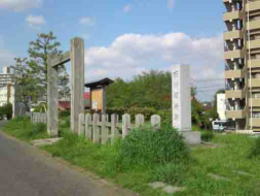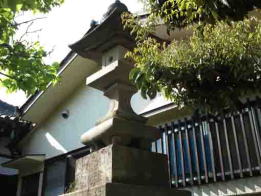Nakayama is in between Narita And Haneda International Airport
<クッキーについての同意並び欧州居住者向けプライバシーポリシー>
中山・下総・散歩道
Edogawa River
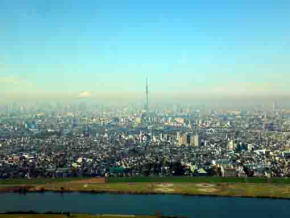
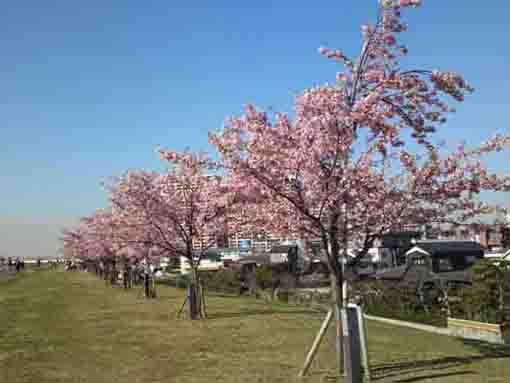
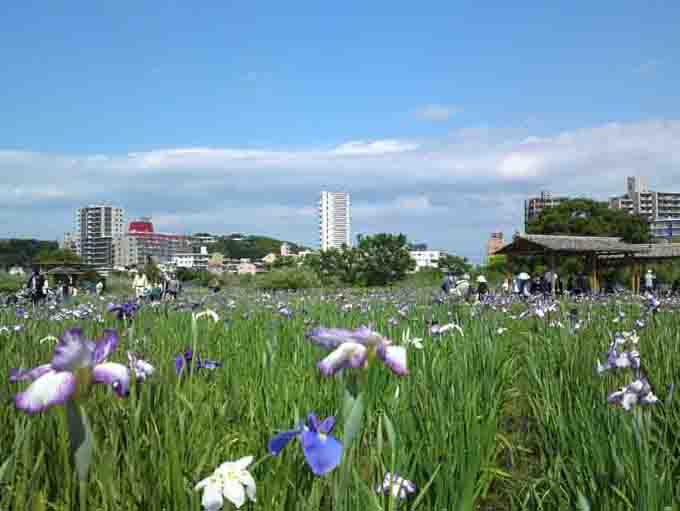
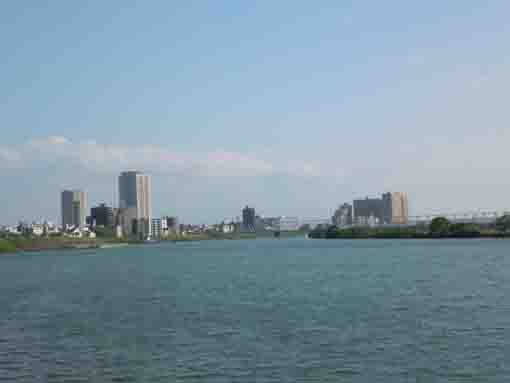
Edogawa River flows on the boundary between Tokyo and Chiba. By trains and mobiles having developed, ships had taken the main role of the transportation system in Edo period, and thousands of products had been brought on Edogawa River from Northern Provinces to Edo every day.
There are many kinds of flowers blooming along Edogawa River and wild nature also exists along it, people enjoy seeing them while they walk along it. On holiday, people enjoy playing baseball and football games at athletic fields opened on flood plains along the river, and many people also enjoy fishing, jogging and cycling along it. In summer, almost millions of people enjoy seeing fireworks at some hanabi festivals held along Edogawa river.
Edogawa River is the best course for people living among it to walk. Why don't you visit the river?
Edogawa River | Ieyasu Tokugawa Had Planed
Edogawa River runs about 60 km on the east borders of Tokyo and Saitama and finally it issues to Tokyo Bay, and it also forms the boundaries on between both prefecture and Chiba. These three prefectures have areas named Katsushika, on the other hand, it is said that Edogawa River runs through Katsushika county.Once upon a time, stream now Edogawa River running had been named Futoigawa River, and the stream came from Watarasegawa River. And Tonegawa River went to Tokyo Bay, now the main stream of it goes to east, it directly flows to the Pacific Ocean. It means that these two big rivers flew to Tokyo Bay, then Tonegawa River was sometimes calls 'Bando Taro' since it had had floods frequently.
Late Sengoku Period, Ieyasu Tokugawa moved to Edo after the Seige of Odawara, and he ordered changing the direction of the stream of Tonegawa river to east to protect Edo from the floods and to create new lands. About 60 years had spent to complete it. And Watarasegawa River is also changed the direction to the east and joins Tonegawa River. And a part of Tonegawa goes on the former stream of Watarasegawa called Futoigawa River, it is Edogawa River and it brings water to Tokyo Bay. In Edo Period, thousands of products from northern provinces brought on the river to Edo and towns along the river much prosperous. Edo Meisho Zue descreibes many noted spots along Shin Tonegawa River (now Edogawa River), and both Meisho Edo Hyakkei (100 noted spots in Edo) by Hiroshige Utagawa and Tonegawa Togan Ichiran (the landscape of East Side of Tonegawa River) show that many ships and boats are going on Edogawa River. The local guide books published in Edo period, 'Katsushika Shiryaku (the summary of Katsushika Area)' and 'Katsushikashi (a book of Katsushika)' said several hundreds of boats went on the river and the water tasted very good.
Now there are several cultural and historical heritages such as the remains of Konodaijo Castle, the Old Battlefields, the ferry at Yagiri, Gyotoku Joyato (the night-light at Gyotoku) and so on existing along Edogawa River.
Moreover, poeple living near Edogawa River enoy seeing cherry blossoms planted on the bank, irises blooming in the flood plain, and they also enjoy playing several kinds of ball games at the athetic fields in the plains along it.
In summer, some hanabi festivals are held along it.
Anyway, there is no specific information when people started calling this river 'Edogawa'. In 1897, Kyoshi Takahama visited Nakayama Hokekyoji Temple and he wrote it on his essay 'Nakayama Dera', and he called the river 'Tonegawa'. Sachio Ito called it 'Tonegawa' in his masterpiece 'Nogiku no Haka' published in 1906. Now Edogawa-ku in Tokyo was founded in 1932, so it might be early Showa Era that people started calling it Edogawa.
Edogawa River has brought wealth and given happiness to the people living near it.
引用・抜粋および参考
国土交通省ホームページ
市川市ホームページ
江戸川区ホームページ
房総叢書 : 紀元二千六百年記念. 第8卷葛飾紀
房総叢書 : 紀元二千六百年記念. 第6卷 葛飾誌略
新訂 江戸名所図会6 ちくま学芸文庫
熊野神社境内案内板(江戸川5丁目)
定本高浜虚子全集第8巻写生文集1「中山寺」 毎日新聞社
野菊の墓
大辞林
ウィッキペディア
The Noted Spots In The Areas Along Edogawa River
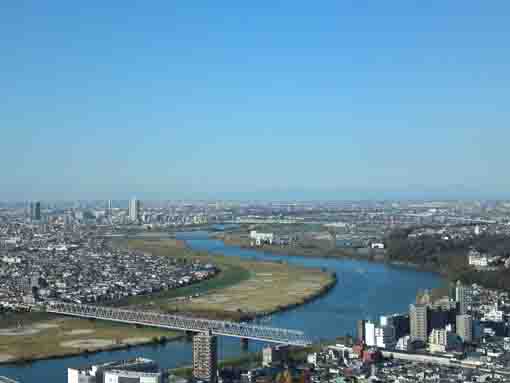
Edogawa River
The short summary of Edogawa River.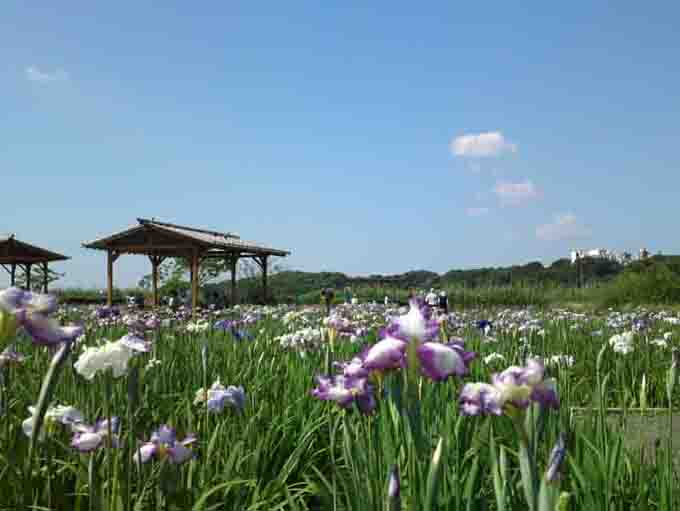
Koiwa Iris Garden and Sakura
Irises, Kawazu Sakura and many kinds of flowers blooming.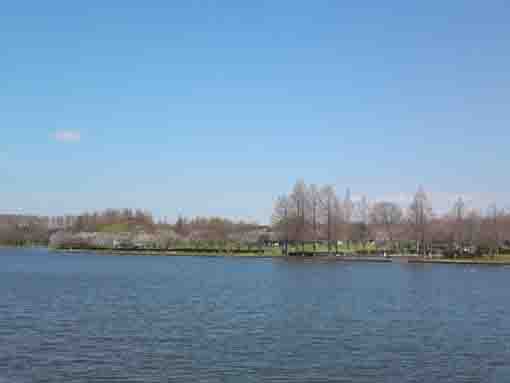
A Walk Around Mizumoto Park
People enjoy seeing the nature and culture in the areas.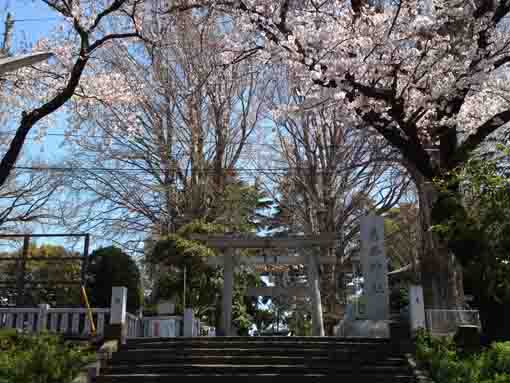
Kasai Jinja Shrine
It has about 900 years history and dedicates Ieyasu Tokugawa.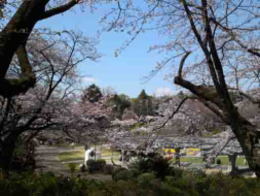
Noted Spots In Satomi Park Area
The park is the noted scenic spot to see cherry blossoms, roses and colored leaves with many historical heritages.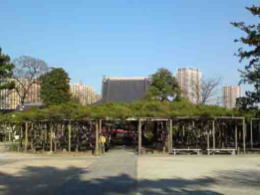
Zenyoji Temple
This temple is famous for Yoko no Matsu, a huge black pine tree designated as a National Natural Property.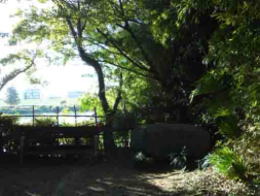
Yagiri no Watashi (The Ferryboat starts at Yagiri)
It has been carrying people since Edo period.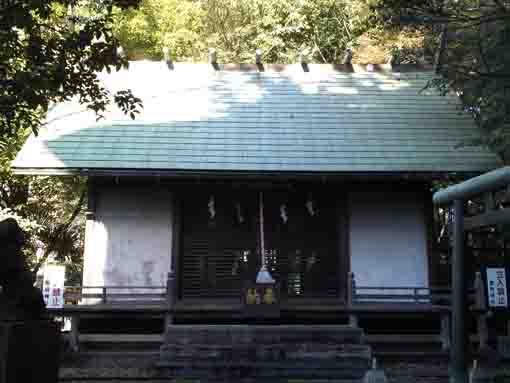
Kokufu Jinja Shrine
It dedicates the Prince Takeru Yamato, one of the great hero in classic Japan.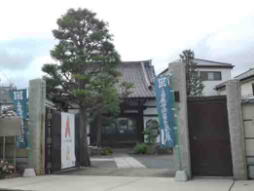
Seiryusan Honzoji Temple
It connects to Maeda Family in Kaga and Mamasan Guhoji.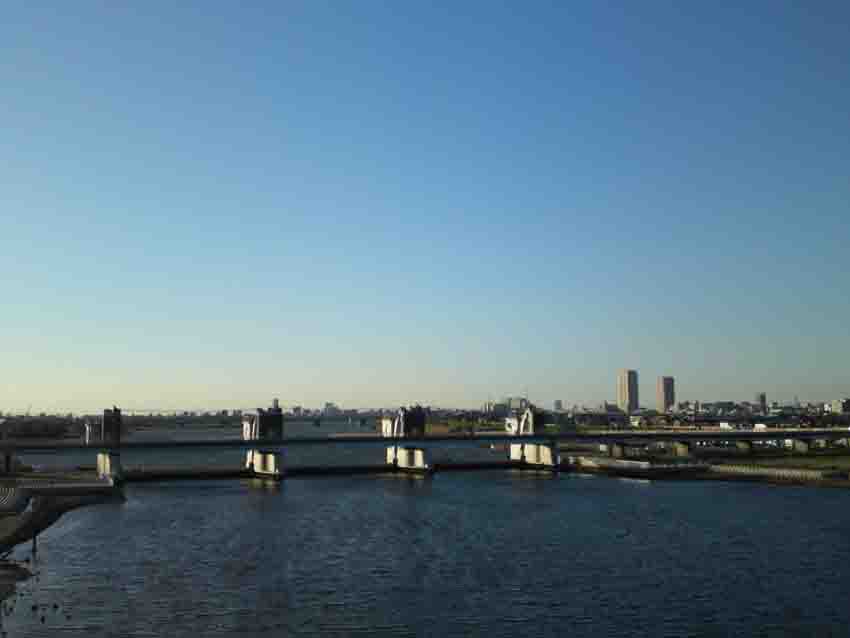
Gyotoku Kaido Highway
Musashi Miyamoto and Basho Matsuo had passed the road.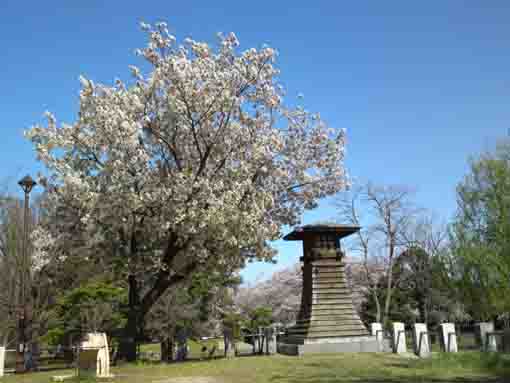
Shinozaki Park
It is a popular park with many trees, sakura and so on.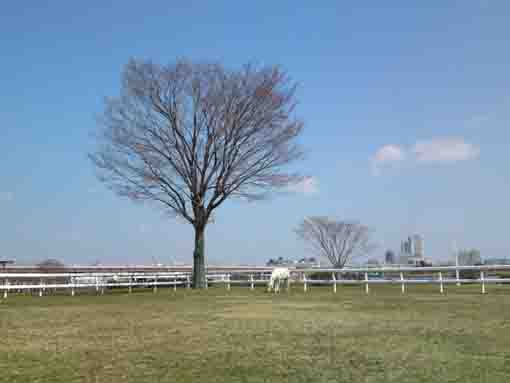
Edogawaku Shinozaki Pony Land
Visitors could see horses from the bank of Edogawa River.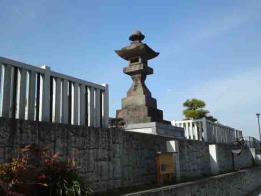
Joyato Park (the night light park)
It was much flourished as one of the Eastern Gates of Edo in Edo period.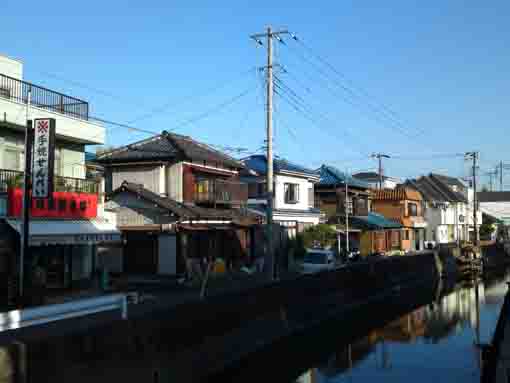
A Walk on Horie and Nekozane in Urayasu
There are some shadows of Edo in temples and shrines there.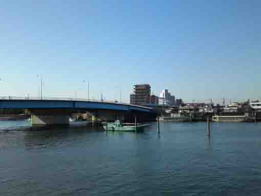
The Remain Of The Ferry At Imai in Gyotoku
Ieyasu Tokugawa used this ferry when he went hawking.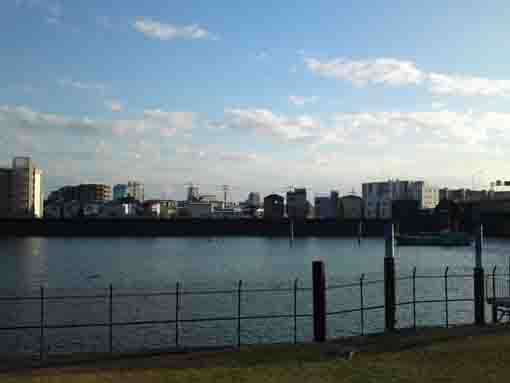
The Remain of the Ferry at Imai in Edogawaku
Socho first landed at Imai during his trip to Boso Peninsula.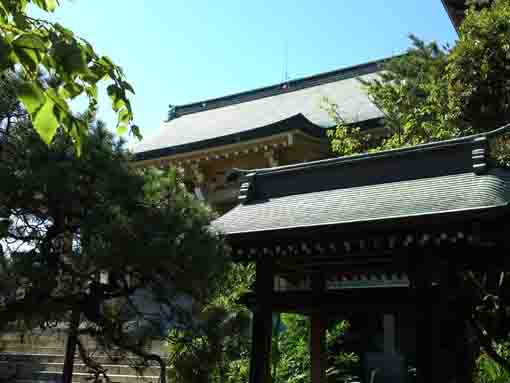
Ryukisan Seitaiin Jokoji Temple
Jokoji is famous for connecting to a famous renga poet Socho and a sengoku daimyo Ujiyasu Hojo.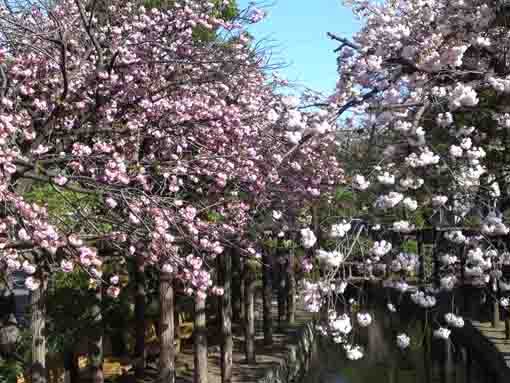
Furukawa Water Park
It is the first water park in Japan with Sakura in spring and hydrangeas in summer.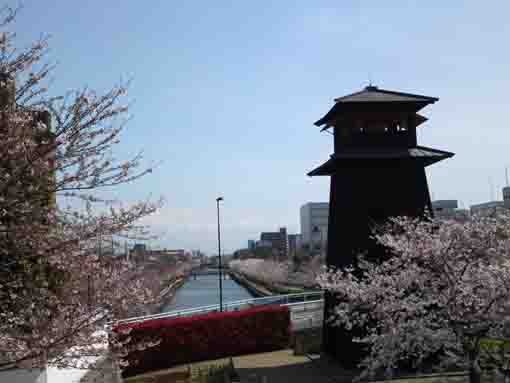
Shinkawa River in Edogawaku
It has some Edostyle Landmarks and thousands of Cherry Trees.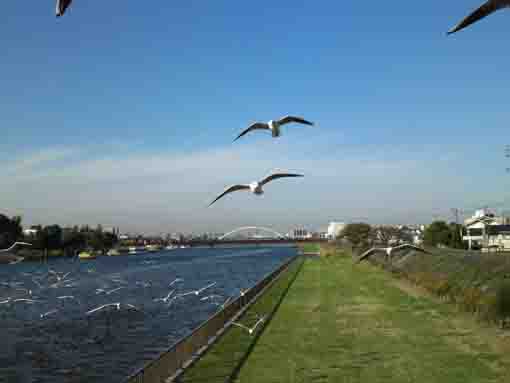
Along Shinnakagawa River
It has some wonderful seasonal views along this river.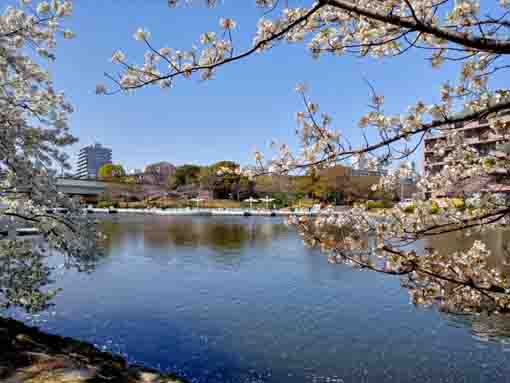
A Walk On Shinsakongawa Water Park
It is opened along Sakongawa River in Edogawaku.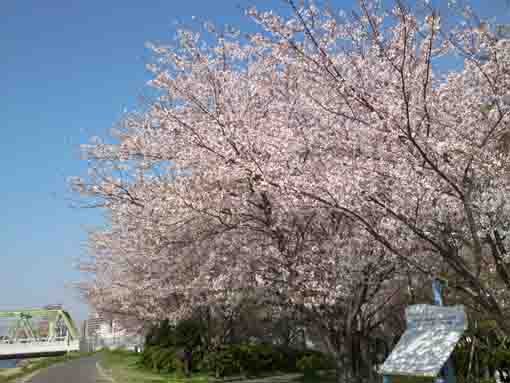
Viewing Seasonal Flowers along Edogawa River
On the banks, many beautiful flowers blooming.- 広告 Advertisement -
